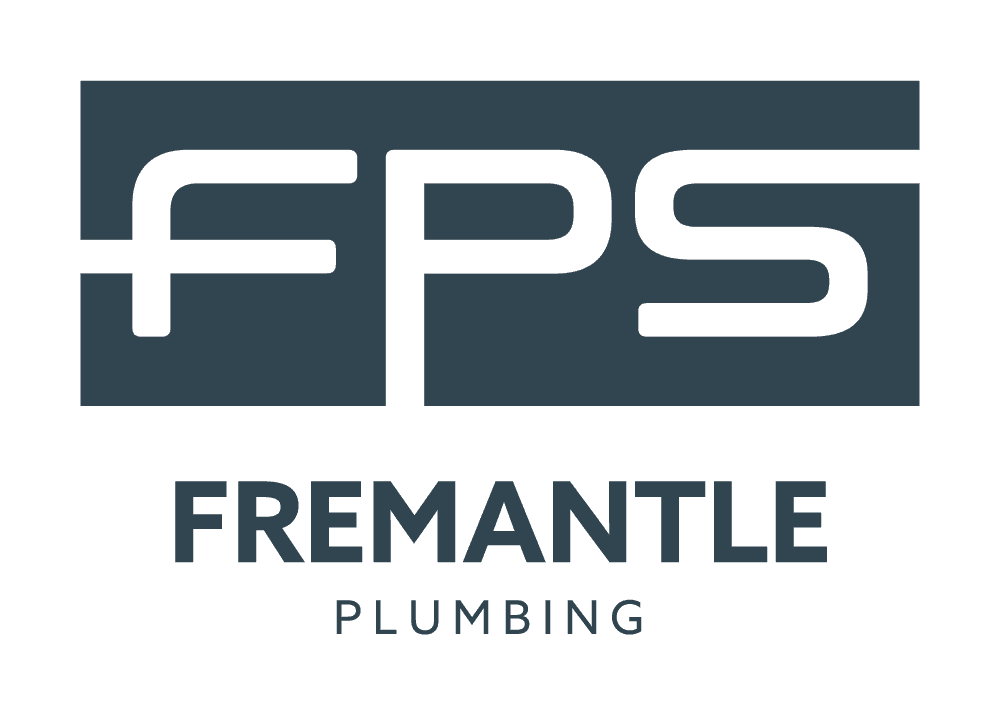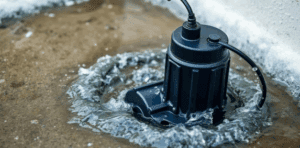As we gear up for the unpredictable weather that August can bring, it’s essential to think about our plumbing systems. With storms and heavy rain, your plumbing can face some serious challenges. Preparing your plumbing for these conditions is key to avoiding costly repairs and ensuring everything runs smoothly. Here’s how to weatherproof your plumbing and keep your home safe no matter what Mother Nature throws at you.
Key Takeaways
- Weatherproof plumbing is vital for protecting your home from extreme weather.
- Sump pumps are essential for managing excess water during heavy rain.
- Regular checks on outdoor taps can save you from unexpected leaks or breaks.
- Investing in quality materials means fewer repairs and longer-lasting plumbing.
Understanding Weatherproof Plumbing Solutions
Importance of Weatherproof Plumbing
Living in Fremantle, we know our weather can be pretty wild, right? From scorching summers to those intense winter storms rolling in off the ocean, our homes cop it all. That’s why weatherproof plumbing isn’t just a fancy term; it’s about protecting your home and your wallet. Think of it this way: a little bit of preparation now can save you a whole lot of stress and expense down the line. Ignoring the need for regular maintenance checks can lead to burst pipes, water damage, and a whole host of other plumbing nightmares.
Common Weatherproofing Techniques
So, what exactly does weatherproof plumbing involve? It’s a mix of preventative measures and smart material choices. Here’s a few things you can do:
- Sealing: Check around pipes where they enter your home and seal any gaps or cracks. This stops cold air from getting in and causing problems.
- Drainage: Making sure your property has proper drainage is key to avoid water buildup around your foundations, which can lead to all sorts of issues.
- Upgrading Materials: When doing renovations or repairs, consider using weather-resistant materials that are designed to withstand the harsh Australian climate.
Benefits of Professional Installation
Sure, some weatherproofing tasks are DIY-friendly, but when it comes to the serious stuff, calling in a professional plumber is always a good idea. A qualified plumber can assess your entire plumbing system, identify potential weaknesses, and recommend the best solutions for your specific needs. Plus, they’ve got the experience and tools to get the job done right, ensuring long-lasting protection for your home. Trying to save a few bucks by doing it yourself might end up costing you more in the long run if something goes wrong. Think of it as an investment in the long-term health of your home. Getting professional extreme weather plumbing tips is always a smart move.
Preparing Your Pipes for Extreme Conditions
Perth weather can be pretty wild, right? One day it’s scorching hot, the next it’s bucketing down rain. All these changes can really put your plumbing under pressure. Let’s look at how to get your pipes ready for anything Mother Nature throws our way.
Identifying Vulnerable Areas
Not all pipes are created equal. Some are more exposed to the elements than others, making them more likely to cause issues. Knowing where these spots are is half the battle. Check these areas:
- Outdoor taps: Obvious, but often overlooked. Make sure they’re properly drained before winter hits.
- Pipes in unheated areas: Garages, basements, and crawl spaces can get seriously cold. Pipes here need extra attention.
- Pipes near exterior walls: These pipes are more exposed to outside temperatures and can be affected by cold more easily.
Regular Maintenance Checks
A little bit of maintenance goes a long way. Regular checks can help you spot potential problems before they turn into full-blown emergencies. Here’s what to look for:
- Leaks: Even small drips can indicate a bigger problem. Get them fixed ASAP.
- Corrosion: Rust and corrosion weaken pipes and make them more likely to burst. If you see any, call a plumber.
- Loose fittings: Tighten any loose connections to prevent leaks. It’s a simple job that can save you a lot of hassle.
Doing these checks every few months, especially before and after extreme weather, can save you a lot of money and stress in the long run. It’s all about being proactive and nipping problems in the bud.
So, how to protect pipes from winter weather? It’s all about identification and inspection. By taking these steps, you can keep your plumbing in top shape, no matter what the weather throws at you. And if you’re not confident doing it yourself, don’t hesitate to call and get a quote from your local Fremantle plumber. They’ll be able to give you expert advice and get the job done right.
Sump Pumps: Your First Line of Defence
When the heavens open up in Fremantle, and the rain just won’t quit, your sump pump is your unsung hero. It’s easy to forget about these little legends until you really need them.
How Sump Pumps Work
Basically, a sump pump sits in a pit – usually in your basement or the lowest part of your house. When water accumulates, the pump kicks in and sends that water away from your home’s foundation. This prevents flooding and water damage, which can be a real headache (and wallet-drainer!).
There are two main types:
- Submersible pumps: These sit in the water. They’re generally quieter and can handle solids better.
- Pedestal pumps: These sit above the water, with a hose going into the pit. They’re usually cheaper but can be a bit noisier.
Choosing the Right Sump Pump
Picking the right sump pump depends on a few things: How much water do you typically get? How big is your house? What’s your budget? A smaller house in a drier area might only need a basic pedestal pump. But if you’re in a flood-prone area, you’ll want something more robust, like a submersible pump with a battery backup. It’s worth chatting with a plumbing professional to get their advice – they can assess your specific needs and recommend the best option.
Maintenance Tips for Sump Pumps
Don’t just install it and forget about it! Regular maintenance includes:
- Check the pit regularly and remove debris like leaves, dirt, and anything else that might clog the pump.
- Test the pump by pouring a bucket of water into the pit to ensure it kicks on and drains water properly.
- Inspect the discharge pipe to ensure it is not blocked or damaged.
- Consider a backup battery or generator to keep the pump running during power outages.
Outdoor Tap Checks for Seasonal Changes
Outdoor taps often get overlooked, but they are highly vulnerable to weather damage. Regular inspections, especially before and after seasonal changes, can prevent expensive repairs and plumbing emergencies.
Inspecting Outdoor Taps
Start by checking for leaks, rust, cracks, and handle stiffness. Ensure water flows properly when you turn them on. Look for any unusual noises, and make sure the tap is firmly attached to the wall or pipe. Ignoring minor issues can lead to burst pipes and water damage.
Preparing Your Outdoor Plumbing for Winter
Winter can be harsh on outdoor plumbing. Here’s what to do:
- Turn off the water supply to outdoor taps, usually via the shut-off valve inside the house.
- Drain the pipes by opening the taps to remove remaining water and prevent freezing.
Signs of Damage to Look For
- Leaks: Persistent drips indicate potential problems.
- Cracks: Damage to the tap body or pipes signals risk of failure.
- Rust: Can weaken metal and lead to leaks or bursts.
- Stiff handles: Hard-to-turn valves may indicate corrosion or mineral buildup.
- Water damage inside the house: Damp patches near outdoor taps could mean a leak.
If you notice any of these issues, contact a Fremantle plumber immediately to prevent major damage.
Emergency Preparedness for Plumbing Issues
Plumbing emergencies often occur during storms or extreme weather. Being prepared can save you a lot of stress and money.
Creating a Plumbing Emergency Kit
Think of this as a first-aid kit for your plumbing. Include:
- Pipe wrench for tightening or loosening pipes.
- Plunger for blocked drains.
- Plumber’s tape for sealing leaks.
- Adjustable spanner for various plumbing tasks.
- Bucket to catch drips.
- Gloves for protection.
- Torch for visibility in dark spaces.
When to Call a Professional
Some plumbing problems require expert attention. Call a licensed plumber if you encounter:
- Burst pipes causing water damage.
- Sewer backups.
- No hot water or water heater issues.
- Gas leaks.
- Extensive water damage you cannot contain.
If you’re unsure, it’s always better to contact a professional rather than risk costly mistakes.
Understanding Local Plumbing Codes
Plumbing work is regulated, and compliance ensures safety and reliability. Key reasons to follow local codes:
- Safety: Protects your family and property.
- Compliance: Avoids fines and future corrections.
- Insurance: Coverage may be denied if work is non-compliant.
- Property value: Proper, compliant plumbing is a selling point.
Always consult your local council or a licensed plumber when doing major plumbing work.
The Role of Drainage in Weatherproofing
Importance of Proper Drainage
Proper drainage protects your home from flooding and water damage during storms. Waterlogged soil can stress foundations, cause cracks, and create a damp environment conducive to pests and mold.
Common Drainage Solutions
- Surface Drains: Channels water away from paved areas like driveways and patios.
- French Drains: Trenches with gravel and perforated pipes to carry water away from the property.
- Sump Pumps: Pump water from basements and low-lying areas to prevent flooding.
- Grading: Ensure your yard slopes away from your house to prevent pooling near the foundation.
Maintaining Your Drainage System
- Clear gutters and downpipes regularly, especially after autumn.
- Inspect surface drains and French drains for debris and blockages.
- Test sump pumps periodically and replace if necessary.
- Monitor soil around your foundation for persistent dampness.
Proper maintenance prevents costly repairs and ensures your home remains safe during storms.
Investing in Quality Plumbing Materials
- Copper: Durable, corrosion-resistant, antimicrobial.
- PEX: Flexible, burst-resistant, easy to install.
- PVC & CPVC: Suitable for drainage and hot water lines.
- Stainless Steel: Ideal for fittings and harsh conditions.
Long-Term Benefits of Quality Plumbing
- Fewer leaks and emergency repairs.
- Longer lifespan of the plumbing system.
- Improved water quality.
- Increased property value.
Wrapping Up Your Plumbing Prep
Weatherproofing your plumbing is essential. Regular inspections, professional installation, and quality materials will keep your home safe from extreme weather. Fremantle Plumbing can provide expert guidance and installation to ensure your system is fully prepared.

